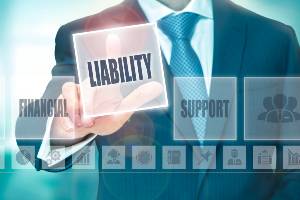 Most car crashes are caused by the negligence of one or more drivers. As Louisiana is a tort or fault state, the party or parties who were negligent are liable for damages from the crash.
Most car crashes are caused by the negligence of one or more drivers. As Louisiana is a tort or fault state, the party or parties who were negligent are liable for damages from the crash.
This sounds simple enough, but each accident is different and there are many factors that could make things more complicated. For example, what if an at-fault driver claims he or she was negligent because of a sudden loss of consciousness, like a stroke?
Can someone be blamed for a crash if that person suffered a medical episode that caused him or her to lose consciousness, even if only for a few seconds?
Louisiana is one of many states that may allow drivers to cite an unexpected medical emergency as a defense to liability. (If a driver suddenly lost consciousness, this may be a defense against liability.) If this defense is successful, the driver is likely immune from liability for the crash.
However, the at-fault driver cannot simply invoke this defense and automatically escape liability. He or she must provide evidence of a medical condition that caused unconsciousness and prove it was unforeseeable.
Below, Galloway Jefcoat’s Lafayette auto accident lawyers discuss the unforeseeable and sudden loss of consciousness doctrine. If you were injured in a crash caused by another driver’s negligence, we are ready to help you seek compensation. An initial consultation is free and there are no upfront fees.
What Could Cause a Sudden Loss of Consciousness?
Drivers could suddenly lose consciousness for a variety of reasons, including:
- Heart attack
- Brain aneurysm
- Choking
- Stroke
- Fainting
- Sudden drop in blood pressure, such as from diabetes
- Narcolepsy (suddenly falling asleep)
- Heart arrhythmia
The loss of consciousness may be momentary or last much longer. However, losing consciousness for one moment is all it may take for a crash to occur.
How Does an At-Fault Driver Prove the Sudden Loss of Consciousness Defense?
The burden of proof for the sudden loss of consciousness doctrine falls to the driver attempting to use this defense. Typically, the standard of proof in a civil case, like a car crash case, is a preponderance of the evidence. However, with the sudden loss of consciousness doctrine, the standard of proof is clear and convincing evidence, which is a higher burden of proof.
It is important to note most car crash claims are settled out of court. However, if an insurance company thinks it can use the sudden loss of consciousness doctrine, a case might make it to court.
The driver asserting this defense would need to show he or she suffered a medical issue that resulted in unconsciousness. That means he or she would need medical records proving he or she suffered from this condition.
Foreseeability of a Medical Emergency
The driver asserting a sudden loss of consciousness would need to show the medical episode was unforeseeable. In other words, the driver would need to show he or she had no reason to suspect such an episode would happen.
This is often the central question that needs to be answered when the sudden loss of consciousness defense is used.
Was the Driver Told Not to Drive?
Sometimes doctors tell patients not to drive because they are at high risk for seizures or suffer from narcolepsy. In these situations, losing consciousness while behind the wheel is foreseeable. If the driver who caused your crash is asserting this defense, your lawyer would likely look for evidence the driver was told not to drive.
Sometimes doctors do not advise patients to avoid driving unless they notice certain symptoms. For example, if someone is diabetic, doctors may tell them to get off the road or avoid driving if their blood sugar drops. Low blood sugar in a diabetic could cause them to feel tired or even lose consciousness.
If your attorney can prove the driver was experiencing symptoms of low blood sugar and chose to drive or to continue driving instead of getting off the road, the sudden loss of consciousness defense may not hold up. If it was reasonable for the driver to not drive because of his or her symptoms, the risk of losing consciousness may have been foreseeable.
Someone who has diabetes must be aware that eating too little over an extended period can be dangerous. It is reasonable to expect someone who is diabetic to be careful about driving because of the dangers of driving with low blood sugar.
Creating the Reason for Unconsciousness
The sudden loss of consciousness defense will not hold up if the at-fault driver created the conditions for him or her to lose consciousness, such as from using drugs or alcohol. Not eating when you are a diabetic could be considered creating the conditions for losing consciousness.
In fact, losing consciousness from choking may be considered creating the conditions for losing consciousness. Drivers should not be eating while driving, as it is a distraction. Losing consciousness because of a distracted driving activity may invalidate a defense of sudden unconsciousness.
What if the Sudden Medical Emergency Defense is Successful?
You may be unable to recover compensation from the at-fault driver’s insurance policy. You may need to turn to your own car insurance policy. If another driver was involved in the crash, you may be able to seek compensation from his or her insurance policy.
Have Questions After a Crash? Call Galloway Jefcoat Today
We have been helping Louisiana crash victims for nearly three decades and have secured millions on their behalf. We work on contingency, which means no upfront fees or legal obligations. That means there is no risk in contacting us to learn how we may be able to help.
Galloway Jefcoat. Licensed Attorneys. Proven Results. 337-984-8020